This spring, HLS Advocates for Human Rights hosted its third annual Global Advocacy Awards, a ceremony to honor human rights activists whose work inspires emerging practitioners to devote themselves to the advancement of human rights and human dignity.
HLS Advocates is a student practice organization (SPO) that gives Harvard Law students an opportunity to participate in human rights-related projects, including work related to climate change, gender and LGBTQ+ rights, protecting cultural heritage, war crime accountability, and much more.
We caught up with Christopher Hudson Verde ‘25, HLS Advocates vice president and treasurer, to hear more about his experience in the HLS human rights community, the Global Advocacy Awards ceremony and finalists, and the lessons he’s learned from these human rights role models.
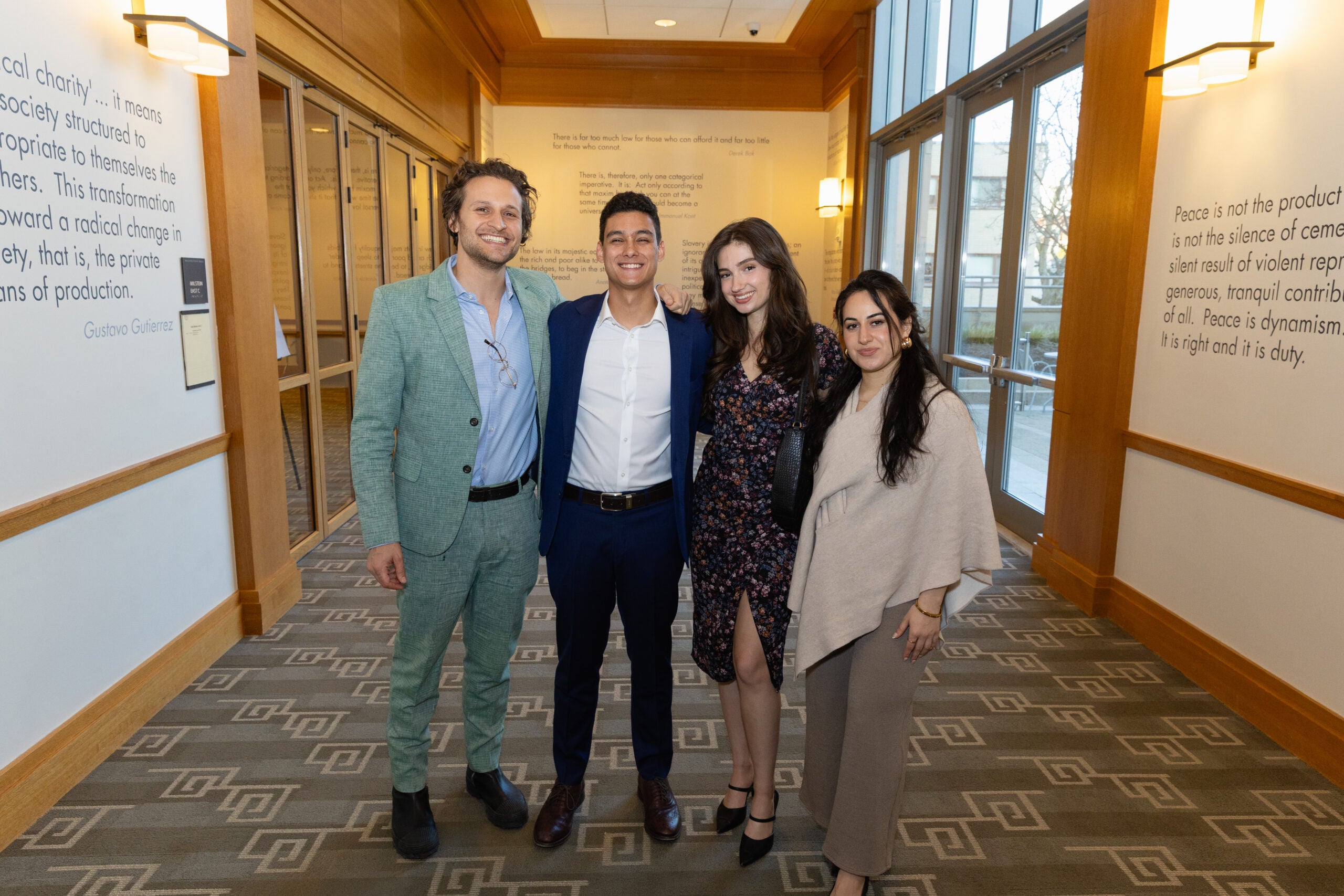
Office of Clinical and Pro Bono Programs (OCP): Why did you join HLS Advocates? What drew you to the SPO?
Christopher Hudson Verde (CHV): My experience in the International Human Rights Clinic brought me to the SPO. I did the clinic my 2L fall semester, and then after trying out the Immigration and Refugee Clinic in 2L spring, I returned to the International Human Rights Clinic again in my 3L fall, and I really loved it—I loved the team and the kind of work that we did. My first semester, we did a project with the Inter-American Commission on Human Rights helping them to develop a prioritization policy to more effectively work on their cases. We finished that project in November and presented it to the commission, and then in December, they actually published a new prioritization policy. It felt like really important and tangible work. Once I’d been exposed to that type of work and when the chance came to try to join the Advocates board, I jumped on that, and I’m glad I did.
OCP: What has the sense of community been like in Advocates? What has it been like to get involved in that human rights community on campus?
CHV: The Advocates community is close-knit. This year, we wanted to host even more community events to bring together the individual teams working on discrete projects. It’s been really nice to meet lots of 1Ls and 2Ls who are interested in human rights—it’s a common interest that keeps us all united. The teams themselves get really close, which is great to see. I’ll see Advocates waving to each other on campus, and I think especially for 1Ls who are still finding their footing, the community can be really helpful.
OCP: Tell us about the Global Advocacy Award. Why does Advocates choose to celebrate human rights activists in this way?
CHV: The idea for the Global Advocacy Award started three years ago, and it’s hosted by both HLS Advocates and the Harvard Human Rights Journal. We believe that human rights advocates very rarely get the recognition they deserve. They often receive recognition after they’ve died, not while they’re still doing the work. And there are so many important causes that don’t necessarily get the visibility that they that they deserve, either. The point of the award is to get these advocates’ stories and causes out there and to start a partnership between Advocates or the clinic and those nominees, so that we can help elevate their work.
We receive nominations from everybody, not just the Harvard community. People submit nominations from truly all over the world. Once we’ve got the nominations, the committee, which is half members of Advocates and half from the Harvard Human Rights Journal, evaluates them with the tough task of narrowing it down to three finalists. To guide us, we want to see how innovative their work is, how likely it is to inspire future generations of lawyers, and how likely they are to support systemic change. Another factor is how likely they are to benefit from increased international visibility. We look for people who aren’t being discussed in the international community as much and causes that we see fewer headlines about.
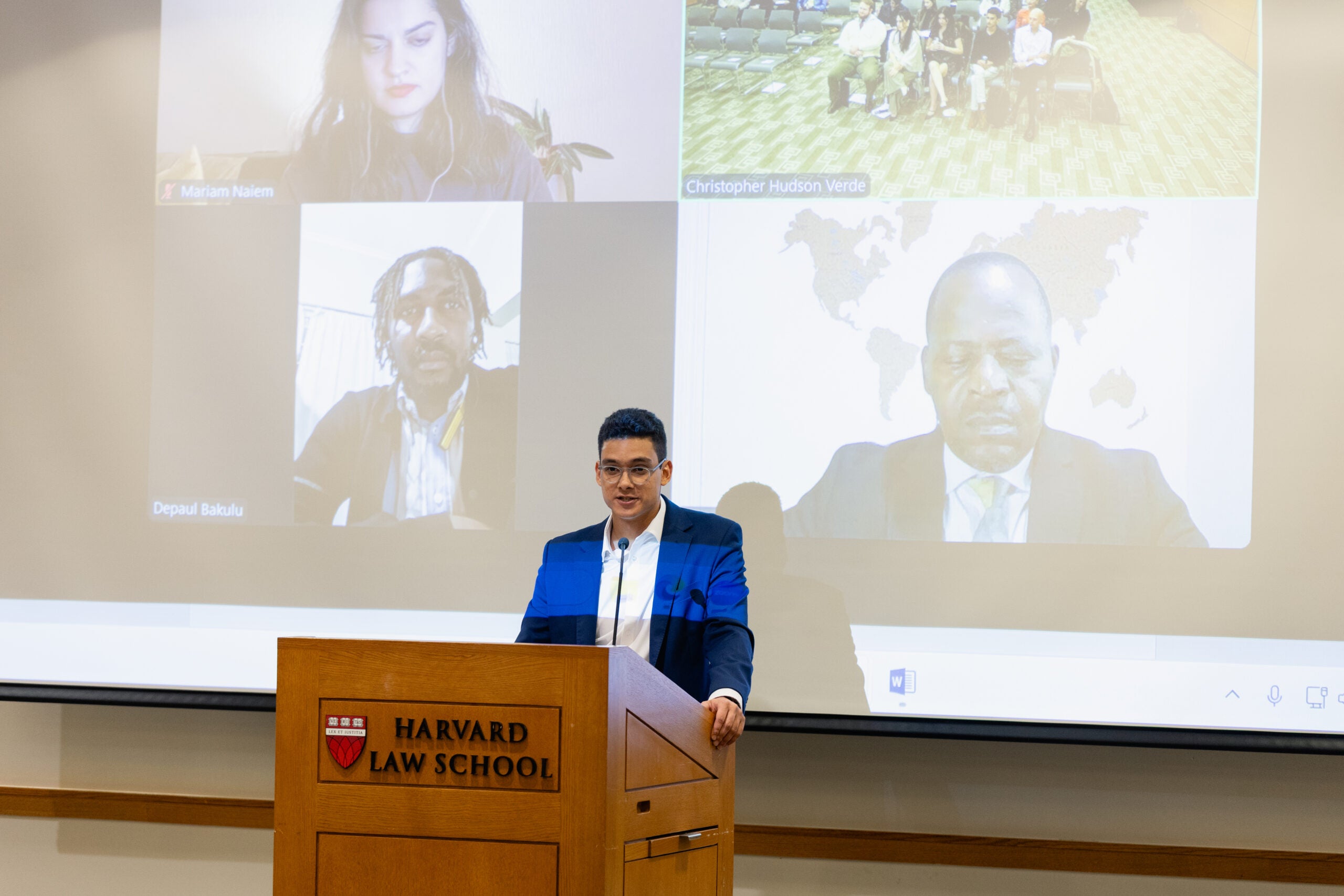
OCP: Who were this year’s finalists for the award?
CHV: This year, we narrowed down our finalists to a human rights activist from the Congo called Depaul Bakulu, who leads grassroots efforts for democracy and education in the region of Goma, which has recently been taken over by M23 rebels. We had another finalist from Haiti called Yvon Janvier, who started the first and only law school clinic in Haiti. He’s had a very strong career—he was a mayor, a journalist, and now he does his activism through the clinic that he runs. Finally, we had a finalist named Mariam Naiem, who’s a cultural scholar from Ukraine working on decolonizing discourse. She’s written a graphic novel called Ukraine: A Short History of a Long War with Russia.
We invited them all to the award ceremony, and even though it was 1 or 2 am in some of the places that they were, they all agreed to come live on Zoom. They gave speeches which were really inspiring. We ultimately selected one winner by vote of the Harvard Human Rights Journal and Advocates membership. Depaul Bakulu ended up receiving the most votes and receiving the award. But really, the goal is to highlight each one of these amazing causes and people.
OCP: How was the event itself? Do any moments from the night stick out as particularly meaningful?
CHV: The finalist speeches stick out as the most meaningful. Each of them was obviously so passionate and so happy to have the chance to talk about their cause in a room full of really motivated present and future lawyers who want to help them or fight for similar causes. Their stories show how brave they are and how much loss they’ve had to suffer along the way, but how they’ve stayed committed no matter what the difficulties are. I think especially now we see it’s a critical time for human rights. Globally, authoritarianism is on the rise. There are more wars than we can keep track of and people who are displaced. I think it’s easy to lose hope but seeing people who have gone through so much worse, who have stayed committed and are still making a difference, is inspiring. Also, seeing so many students there gave me hope that there’s some light at the end of the tunnel, that people will continue doing this work and haven’t been swayed by the challenges we’re facing.
OCP: How have your experiences in Advocates, organizing this award, and getting to know activists in the field shaped your perspective on a career in human rights advocacy? What lessons have you learned from these folks?
CHV: I’ve learned lessons about the importance of perseverance and commitment. Something that’s crystallized to me as I do this work is that human rights work is really a labor of love. Human rights comes from the empathy we can have for one another, the idea that no matter what, where we’re from or how much money we have, that everyone is entitled to the same rights of dignity and peace and justice. It is, to me, an expression of our empathy, our capacity to care for one another, and our interdependence. Seeing people give so much of themselves and expect nothing in return, I do really see it as a labor of love and commitment and perseverance. Hand in hand with that, these activists don’t see an alternative to stopping, and I think that’s really encouraging.
I didn’t think I was interested in a human rights career when I entered law school. When I started looking at the list of clinics, I saw it as an opportunity for two years where I could help people while still in law school. I selected the human rights and the immigration clinics, and that opened my eyes to this new world of advocacy, of using our resources and our voice to help those who don’t have as much of either. It actually reminds me of one of our finalists, who put a big emphasis on being a voice for the voiceless, and that really stuck with me. The experiences have really opened my eyes to this area that I’ve fallen in love with and hope to pursue in the future.
View photos from the event
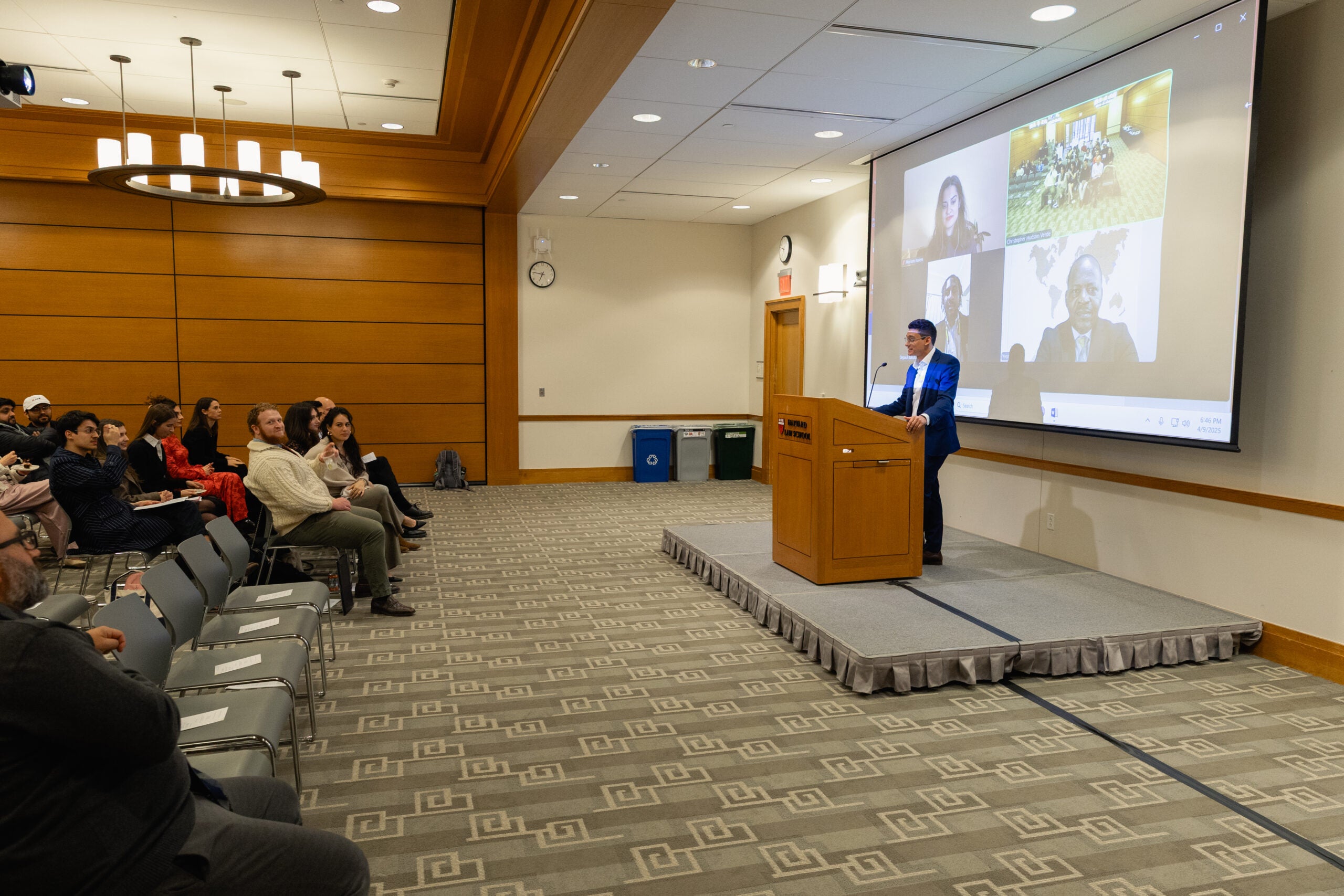

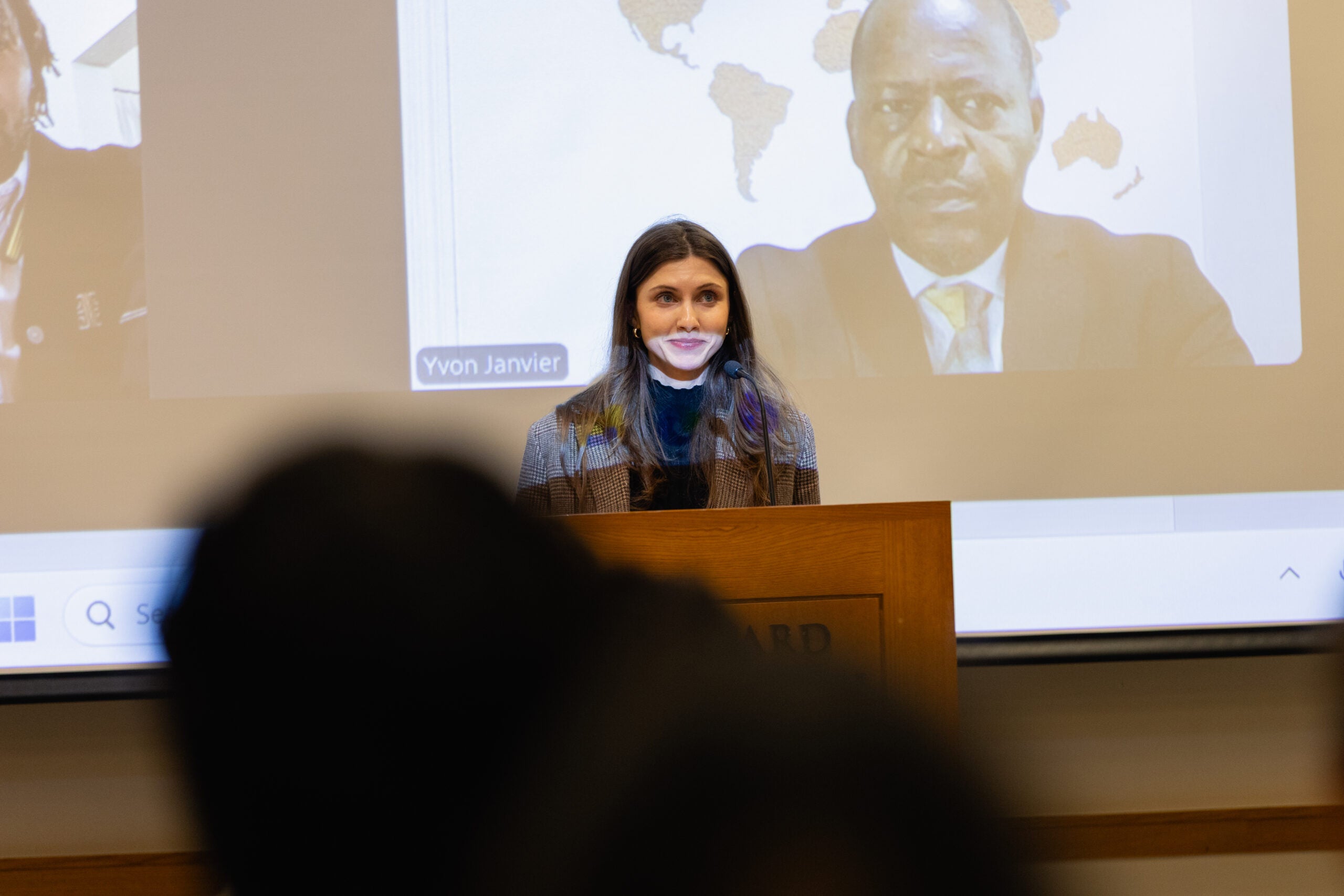
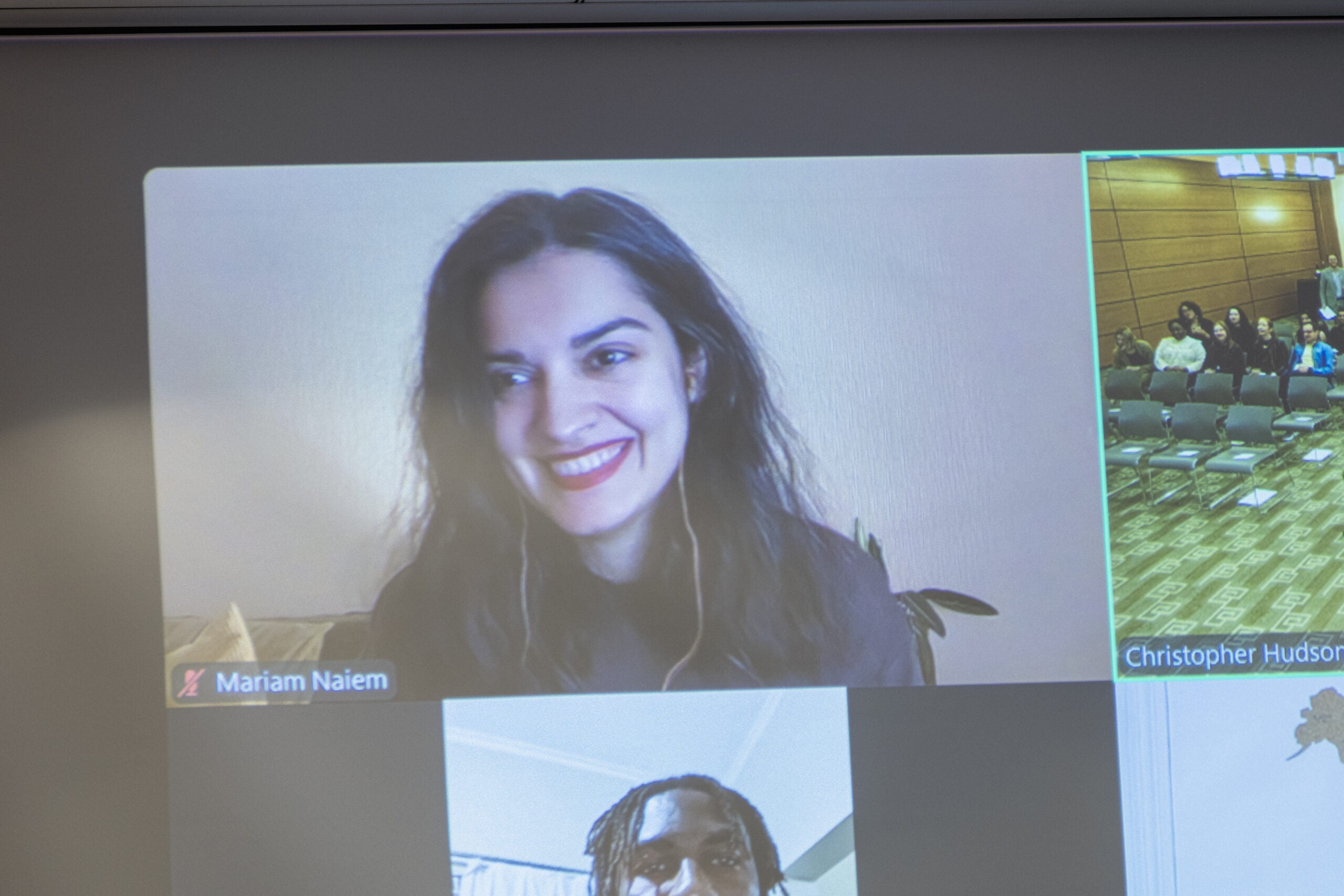
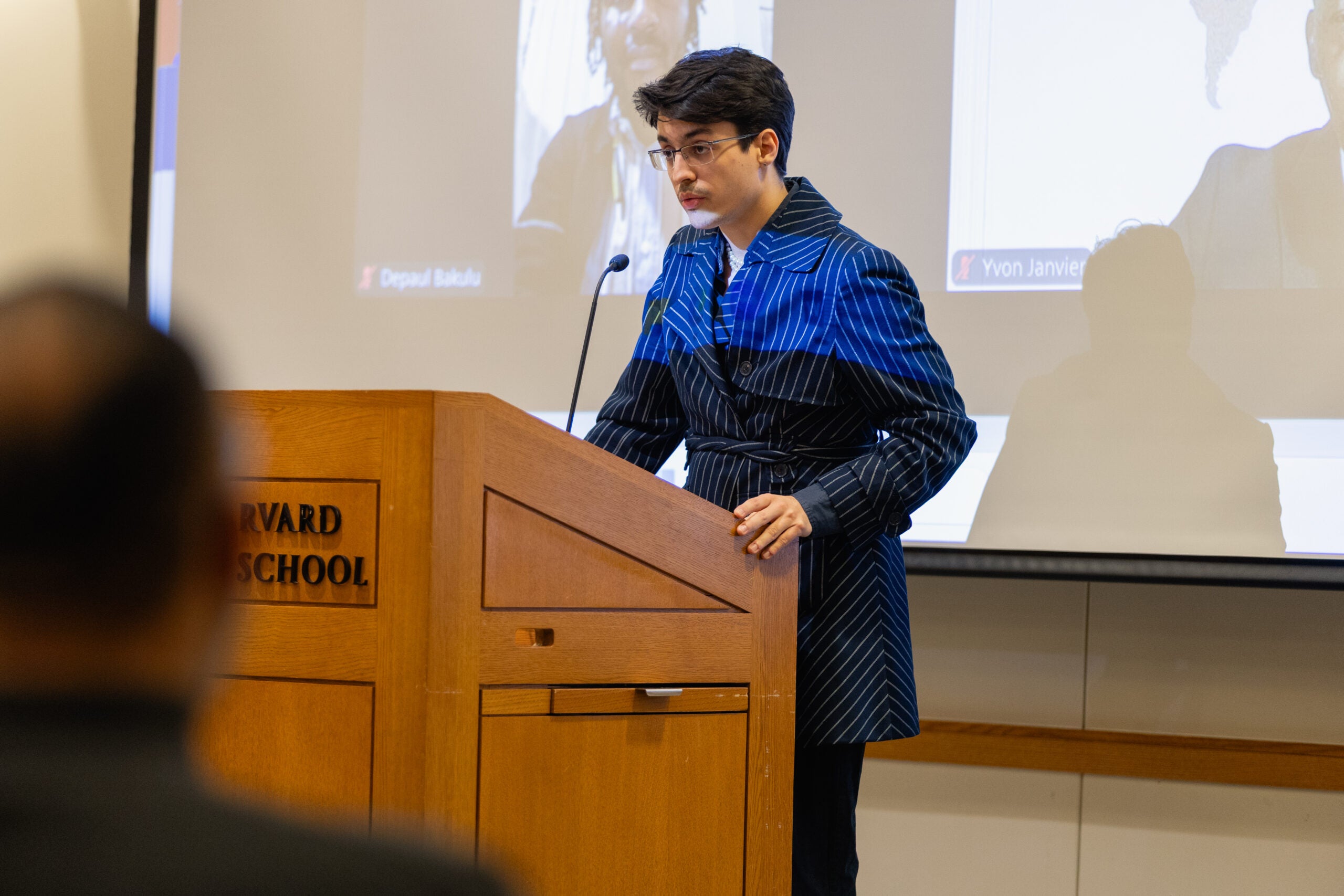
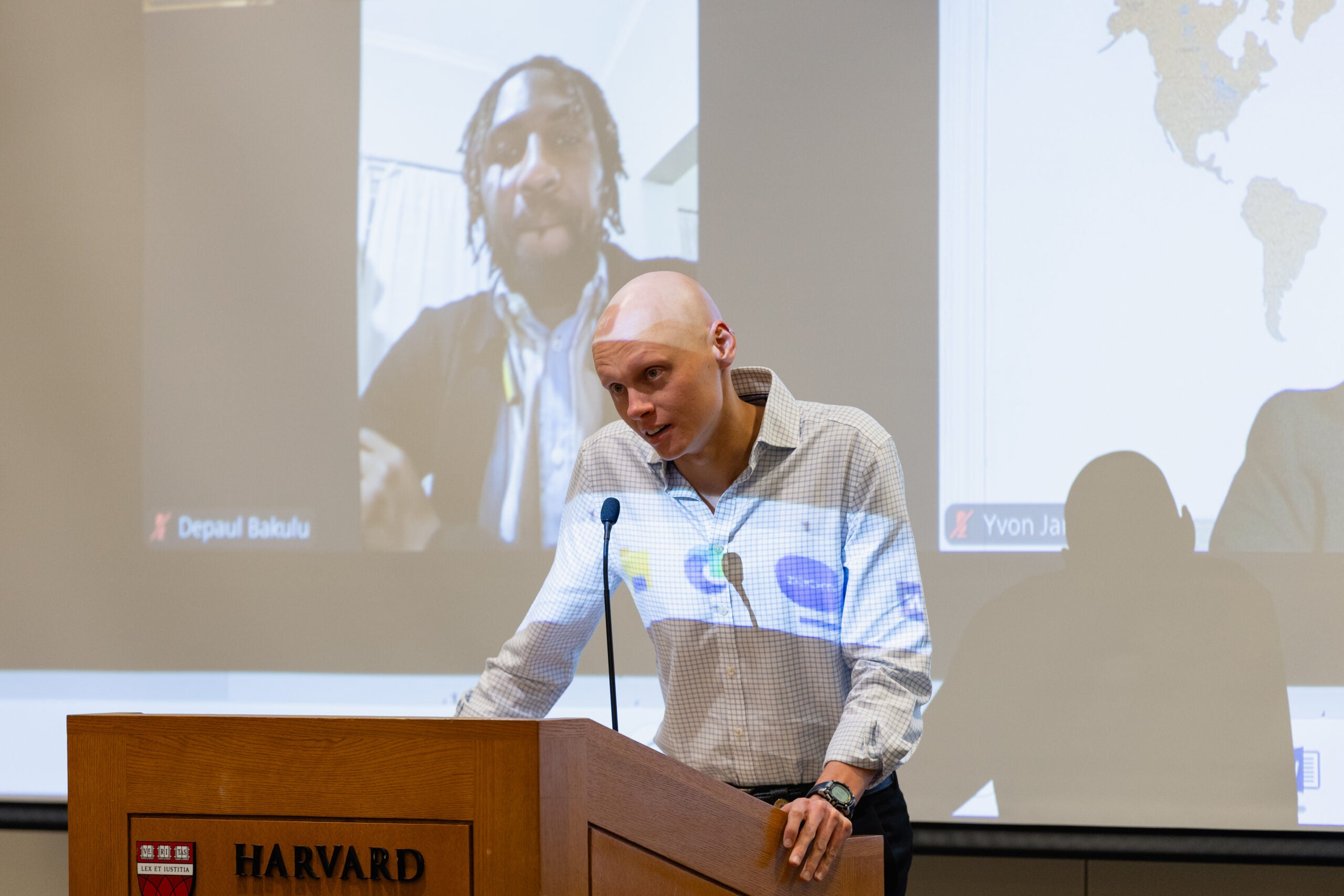
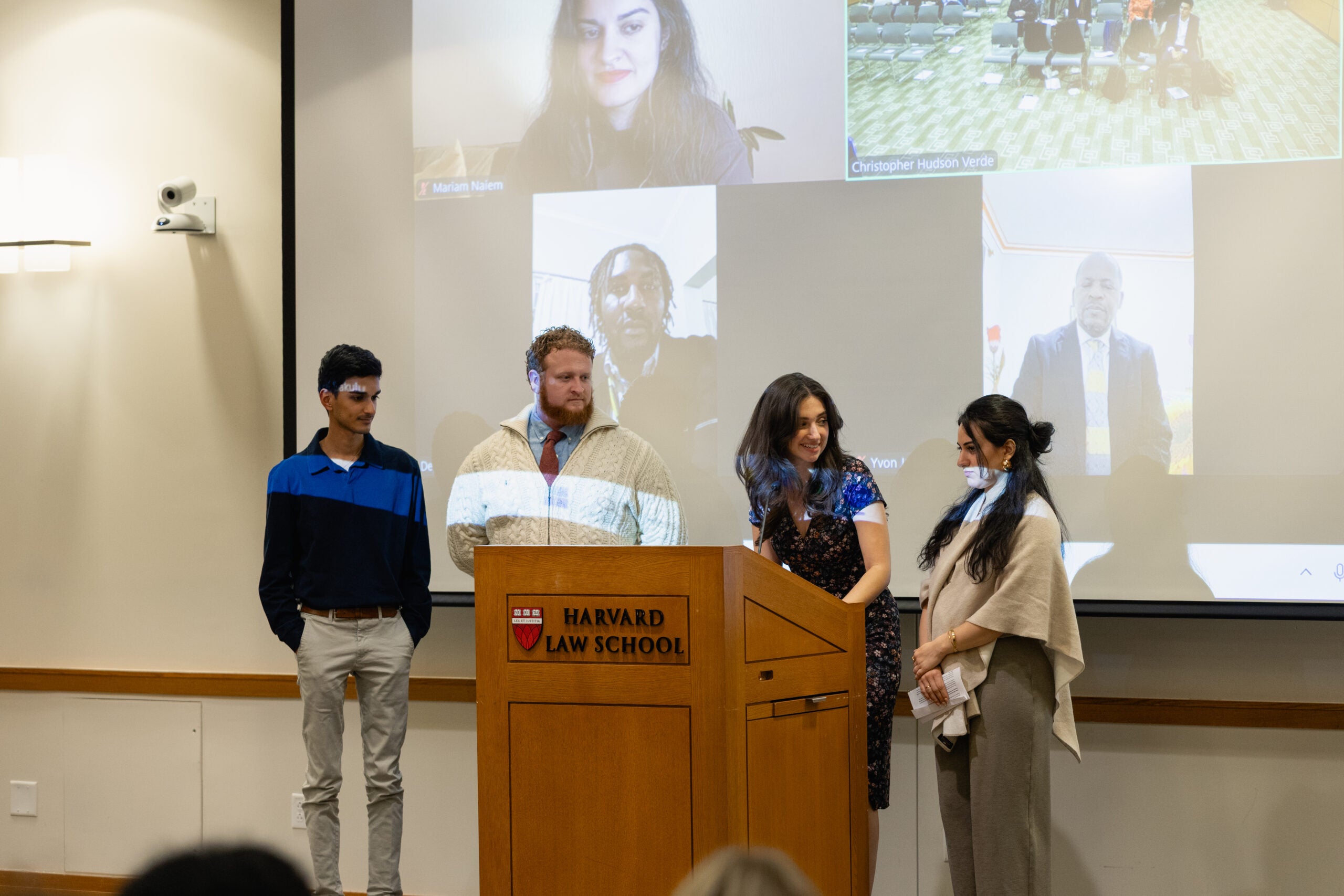
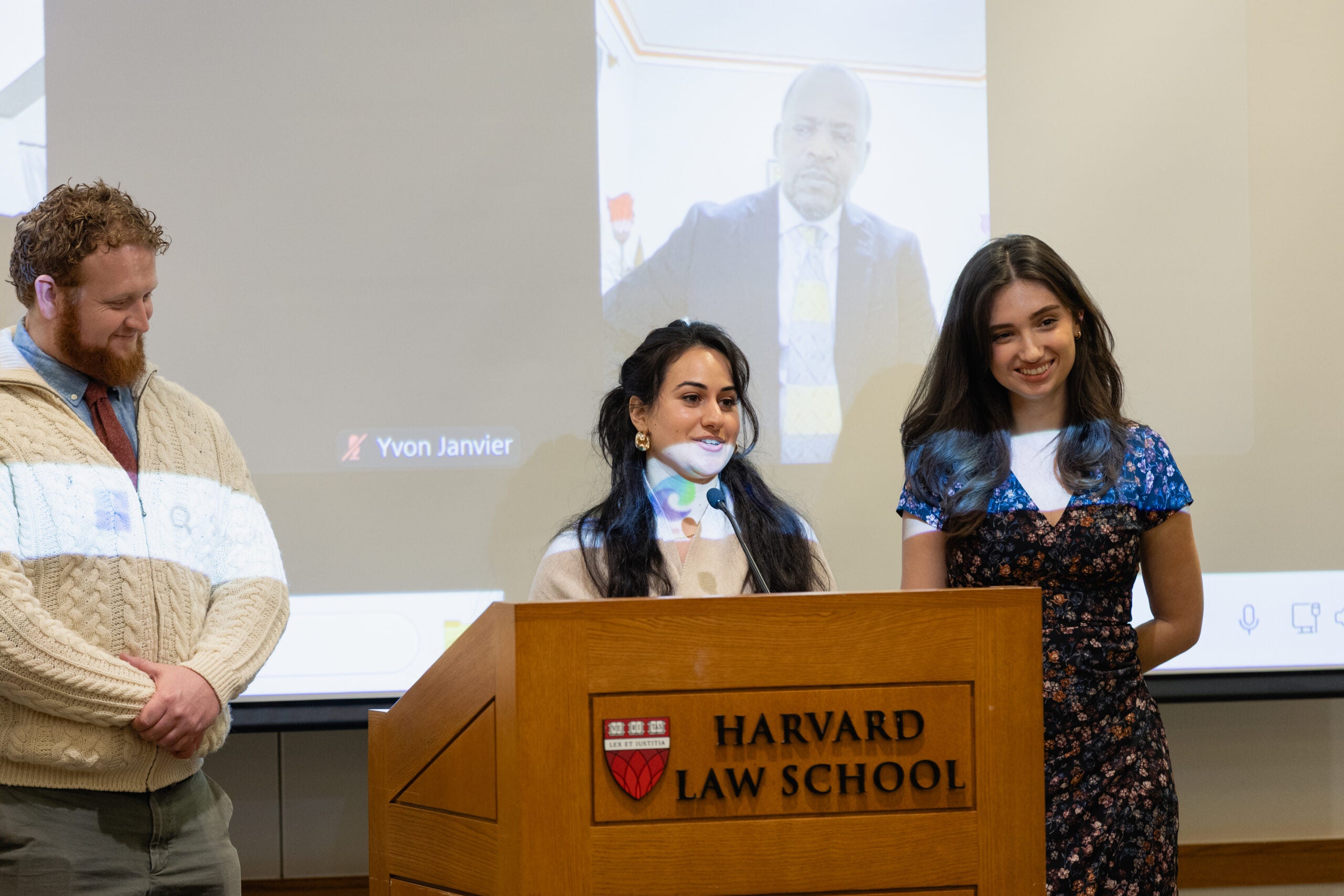
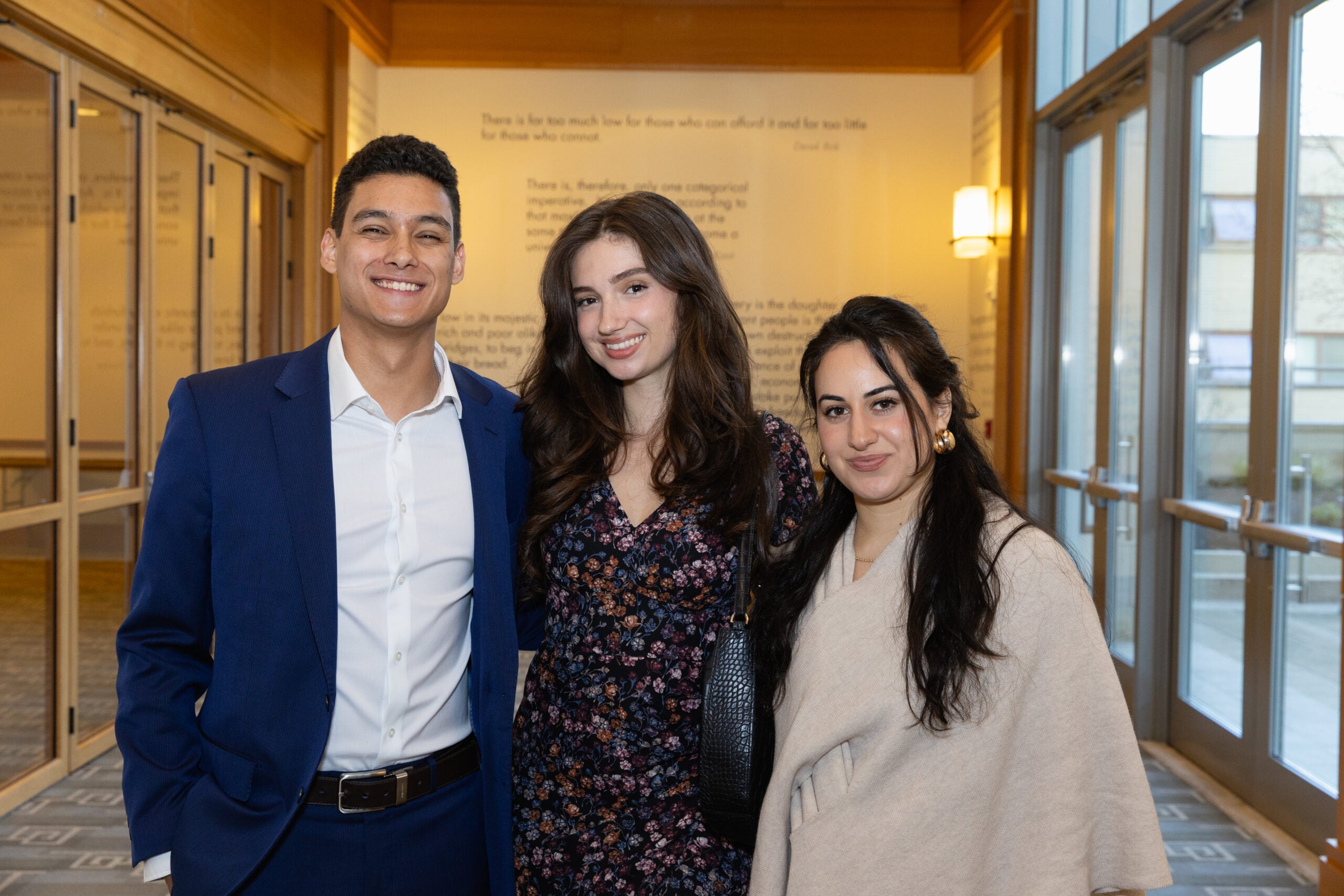
Filed in: Events
Tags: Class of 2025, HLS Advocates for Human Rights, International Human Rights Clinic